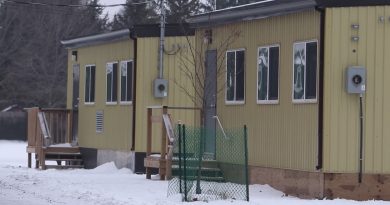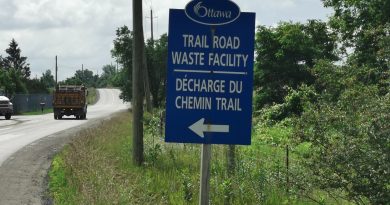Kevin St. Denis Running As NDP Candidate In Carleton
By Charlie Senack, Manotick Messenger
Background: in 2018 the New Democrats picked up an orange wave of support across the province after Kathleen Wynne and the Liberals lost official party status with only seven seats, the worst governing party defeat in Ontario history. That election saw the Carleton NDP’s come in second place with about 22 per cent of the vote. This election, Kevin St. Denis will be representing the party locally on the ballot. St. Dennis is an occasional teacher with the OCDSB, and has also taught in various parts of the world including: Poland and Tanzania.
Q: It’s my understanding you are fairly new to the political world after dedicating a large portion of your working life to education. Why are you representing the NDP in Carleton this election?
A: I began working with the local NDP candidate during the federal election, and I became inspired. The teacher connection makes a lot of sense for me; I’ve seen a lot of what should be done and it would be nice to help them out.
Q: Education is clearly a big passion for you and a motivating factor for you in this election. It also gives you a unique perspective. What is your biggest want for schools in Carleton, and would you like to see more built quickly?
A: I’m cognizant of the fact that these things do take time, but time isn’t something that the young people get to have. If we properly support them is how we set them up for the future. We need them to have the resources today. Being crammed into classrooms doesn’t facilitate the kid if support a student needs. It’s one thing to get your passing mark and move onto the next grade, but I feel like we should be setting them up to not just succeed, but excel. I’m talking about things like educational assistants, learning support teachers. Even a little bit of one on one students doesn’t only make them feel like they can go on to succeed, but it also helps them feel supported.

Q: Two years into a global health pandemic, COVID-19 will be a big talking point in this provincial election. How would you rate the governments handling of the pandemic?
A: As far as a rating system goes, I think it’s really difficult. We will call it coincidental to give everyone the benefit of the doubt, but Ontario apparently had the most online (schooling) time in North America. Is it a coincidence that the government pushed us to move online before the pandemic kept us online the longest amount of time? There are many people who view school as their safe place; they are happy to be there.
I’m focusing a lot on education because of my background, but additionally we saw the long-term care situation. I’m hurt by it, I didn’t have to see it, and I guess one of the big problems is people were separated away from their loved ones and didn’t get to see it. It really exposed the problem that a lot of us already anticipated with privatization of essential services.
Q: Saying you are elected to be the next Queens Park representative for Carleton, what would you like to do to make the riding better for everyone?
A: My lens has always been through the young people, but talking to some of the older people recently, a lot of the problems happening are really affecting them. I have a hard time deflecting things like health care or the environment from the local perspective.
We saw the supply change crisis, despite being surrounded by farms. It seems like here is a real chance for a reckoning where we can put a real focus on our farmers who are sitting there and working for us.
For Carleton I think it would be really great if we look at green initiatives especially. We want the students in my schools to remain interested in the (farming) industry they are being taught for free. Some of my students will sometimes miss class because they are going to farm fairs and come back talking about how excited they are about how their goat did. I think Carleton would do well to have their farmland preserved and maybe not paved over, and maybe not outsourced to foreign producers.






